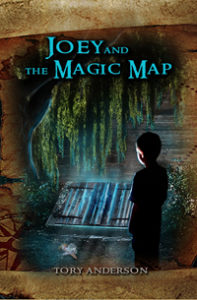I first met Louisiana Elefante in the book Raymie Nightingale. Louisiana may have just been a side character, but she is one to draw attention. From the moment she faints during baton lessons to when I learn she has been taught how to steal tuna fish from the grocery store by her grandma so that they can have something to eat, she was unforgettable. The last scene in which I saw her in Raymie Nightingale she is riding in a runaway grocery cart down a hill toward a lake (and she can’t swim). She looks at where she is going and says, “Oh, My!” Then she looks back at her two friends who are chasing the cart and says politely, “Goodbye.” It’s no wonder that when I saw that Kate DiCamillo wrote a book just about Louisiana I didn’t hesitate to pick it up.
If you met Louisiana in real life you would quickly ascertain that she is a unique personality. She would tell you the story of her parents—trapeze artists—who died in a shipwreck. She can’t be called a liar or fanciful for her family history as it’s the story her grandmother told her. She accepts it without question. She will tell you that she suffers from a “curse of sundering.” This is a curse where you are destined to constantly be separated from those you love. This isn’t tragical romanticizing on her part. She sincerely believes it. When a stranger sees her behind the wheel of a car and asks her if she should be driving (she is just 12 years old, after all), she answers:
“Yes, I should be driving. The situation is dire!”
You may think she is being overly dramatic speaking this way, but if your grandma had abducted you from your home in the middle of the night saying, “The day of reckoning has come!” and who is now lying in the back seat of the car incapacitated with a toothache and you are driving a car for the first time through a strange town in a neighboring state looking for a dentist, you might speak the same way. No, Louisiana is an unusual girl, with an unusual history, in unusual circumstances that makes her different from anyone else you might ever meet. Because of her unusualness, she is a girl I desperately want to meet.
The question is, do I really want to meet a girl like Louisiana Elefante, or is it just a nice idea. There are many in the book who are not pleased to meet a girl like her. The dentist’s receptionist is only concerned about running a strict schedule and not helping a desperately sick grandma. The motel owner is focused only on payment and not on human beings who have been caught in a very difficult situation. These are truly unlikable, even mean, people who don’t realize how miserable they are. But with these unhappy people we meet human beings who give the rest of us hope. One of these is the greasy gas station owner who seems unresponsive to Louisiana’s chatter, but seems to read her soul. Seeing her eyeing the packages of peanuts on a rack on the counter he tells her, “You can have as many as you want. No charge.” When she takes sixteen packages (Louisiana is legitimately half starved at all times) the man just smiles. She meets other people even kinder.
The tragedy of Louisiana’s life caught me off-guard. When she, while tears fall quietly from her eyes onto the couch in the living room of near strangers, says, “I don’t know who I am,” only the reader fully understands the depth of her words. To experience the revelation that Louisiana, a fictional character experiences and feel the feelings she feels, is a testimony to the power of fiction. No TED talk would come close to getting me to understand what it’s like to be in Louisiana’s position. I love these powerful literary moments.
Kate DiCamillo is a proponent of hope for the human race. Louisiana’s Way Home written by many others would most likely be dark and depressing. If not dark and depressing, it would be silly and saccharine. DiCamillo, in my opinion, walks the fine line between the two—a fine line that follows the goodness that really can be found in the hearts of human beings. Along with the miserably mean people Louisiana encounters (people who are probably more like us than we want to believe) she lands among the beautiful people of our race who make me proud to be a human being. These are people who I want to be like—something DiCamillo helps me believe can really be.
Louisiana’s Way Home brings to life the kind of girl who I would find annoying in real life, but manages to show me the rare beauty behind the annoyance. It makes me feel special because I feel like I am one of the chosen few who become a friend of Louisiana and that makes me unique, like she is.
These books by Tory Anderson are now available on Amazon in Kindle and paperback format:





